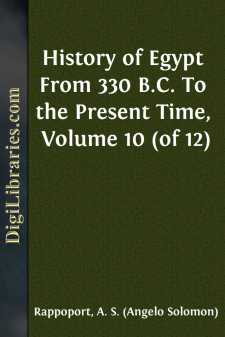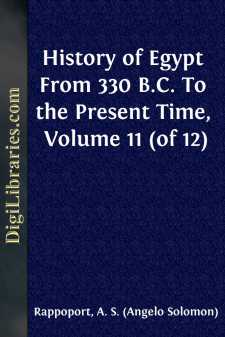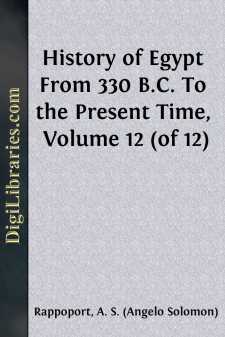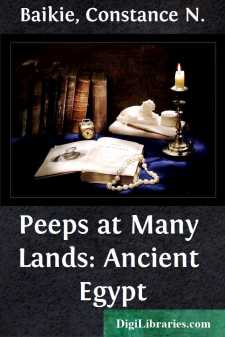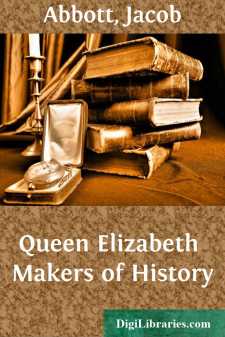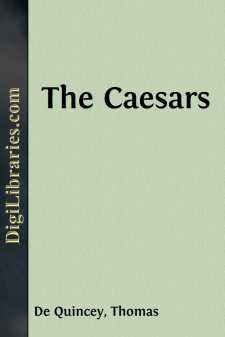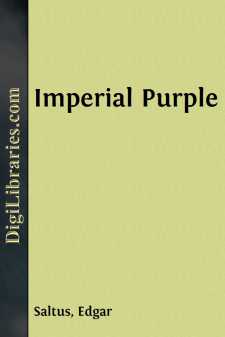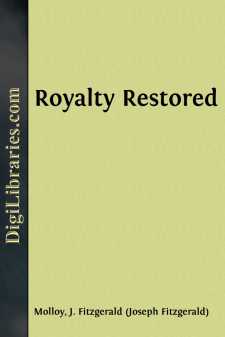History
- Africa 30
- Americas (North Central South West Indies) 50
- Ancient 68
- Asia 58
- Australia & New Zealand 8
- Canada 41
- Caribbean & West Indies 1
- Civilization 20
- Eastern Europe 12
- Europe 310
- Expeditions & Discoveries 60
- General 77
- Historical Geography 1
- Jewish 9
- Latin America 3
- Medieval 8
- Middle East 13
- Military 248
- Revolutionary 8
- Study & Teaching 5
- United States 353
- Western Europe 56
- World 13
History Books
Sort by:
INTRODUCTORY ESSAYHELLENISM AND HEBRÆISM IN EGYPT UNDER THE PTOLEMIESI.When Alexander the Great bridged the gulf dividing Occident and Orient, the Greeks had attained to a state of maturity in the development of their national art and literature. Greek culture and civilisation, passing beyond the boundaries of their national domain, crossed this bridge and spread over the Asiatic world. To perpetuate...
more...
CHAPTER I—EGYPT UNDER THE ROMAN EMPIRE The Roman dominion on the Nile: Settlement of the Egyptian frontiers: Religious developments: Rebellions. Augustus began his reign in Egypt in B.C. 30 by ordering all the statues of Antony, of which there were more than fifty ornamenting the various public buildings of the city, to be broken to pieces; and it is said he had the meanness to receive a bribe of one...
more...
CHAPTER I—THE CRUSADERS IN EGYPT The Ideal of the Crusader: Saladin's Campaign: Richard I. in Palestine: Siege of Damietta: St. Louis in Egypt: The Mamluks: Beybars' Policy. The traditional history of the Christian Church has generally maintained that the Crusades were due solely to religious influence and sprang from ideal and moral motives: those hundreds of thousands of warriors who went...
more...
CHAPTER I "A LAND OF OLD RENOWN" If we were asked to name the most interesting country in the world, I suppose that most people would say Palestine—not because there is anything so very wonderful in the land itself, but because of all the great things that have happened there, and above all because of its having been the home of our Lord. But after Palestine, I think that Egypt would come...
more...
by:
Walter Raleigh
INTRODUCTORY NOTE Sir Walter Raleigh may be taken as the great typical figure of the age of Elizabeth. Courtier and statesman, soldier and sailor, scientist and man of letters, he engaged in almost all the main lines of public activity in his time, and was distinguished in them all. His father was a Devonshire gentleman of property, connected with many of the distinguished families of the south of...
more...
by:
Jacob Abbott
Chapter I. 1533-1536Greenwich.The hospital.Its inmates.Greenwich Observatory.Manner of taking time.Travelers, in ascending the Thames by the steamboat from Rotterdam, on their return from an excursion to the Rhine, have often their attention strongly attracted by what appears to be a splendid palace on the banks of the river at Greenwich. The edifice is not a palace, however, but a hospital, or,...
more...
THE CÆSARS. The condition of the Roman Emperors has never yet been fully appreciated; nor has it been sufficiently perceived in what respects it was absolutely unique. There was but one Rome: no other city, as we are satisfied by the collation of many facts, either of ancient or modern times, has ever rivalled this astonishing metropolis in the grandeur of magnitude; and not many—if we except the...
more...
by:
Edgar Saltus
THAT WOMAN When the murder was done and the heralds shouted through the thick streets the passing of Caesar, it was the passing of the republic they announced, the foundation of Imperial Rome. There was a hush, then a riot which frightened a senate that frightened the world. Caesar was adored. A man who could give millions away and sup on dry bread was apt to conquer, not provinces alone, but hearts....
more...
CHAPTER I INTRODUCTION This book is intended not to raise fears but to record facts. We wish to describe with pen and pencil those features of England which are gradually disappearing, and to preserve the memory of them. It may be said that we have begun our quest too late; that so much has already vanished that it is hardly worth while to record what is left. Although much has gone, there is still,...
more...
CHAPTER I. Cromwell is sick unto death.—Fears and suspicions.—Killing noMurder.—A memorable storm.—The end of all.—Richard Cromwellmade Protector.—He refuses to shed blood.—Disturbance anddissatisfaction.—Downfall of Richard.—Charles Stuart proclaimedking.—Rejoicement of the nation.—The king comes into his own.—Entryinto London.—Public joy and satisfaction. On the 30th of...
more...


